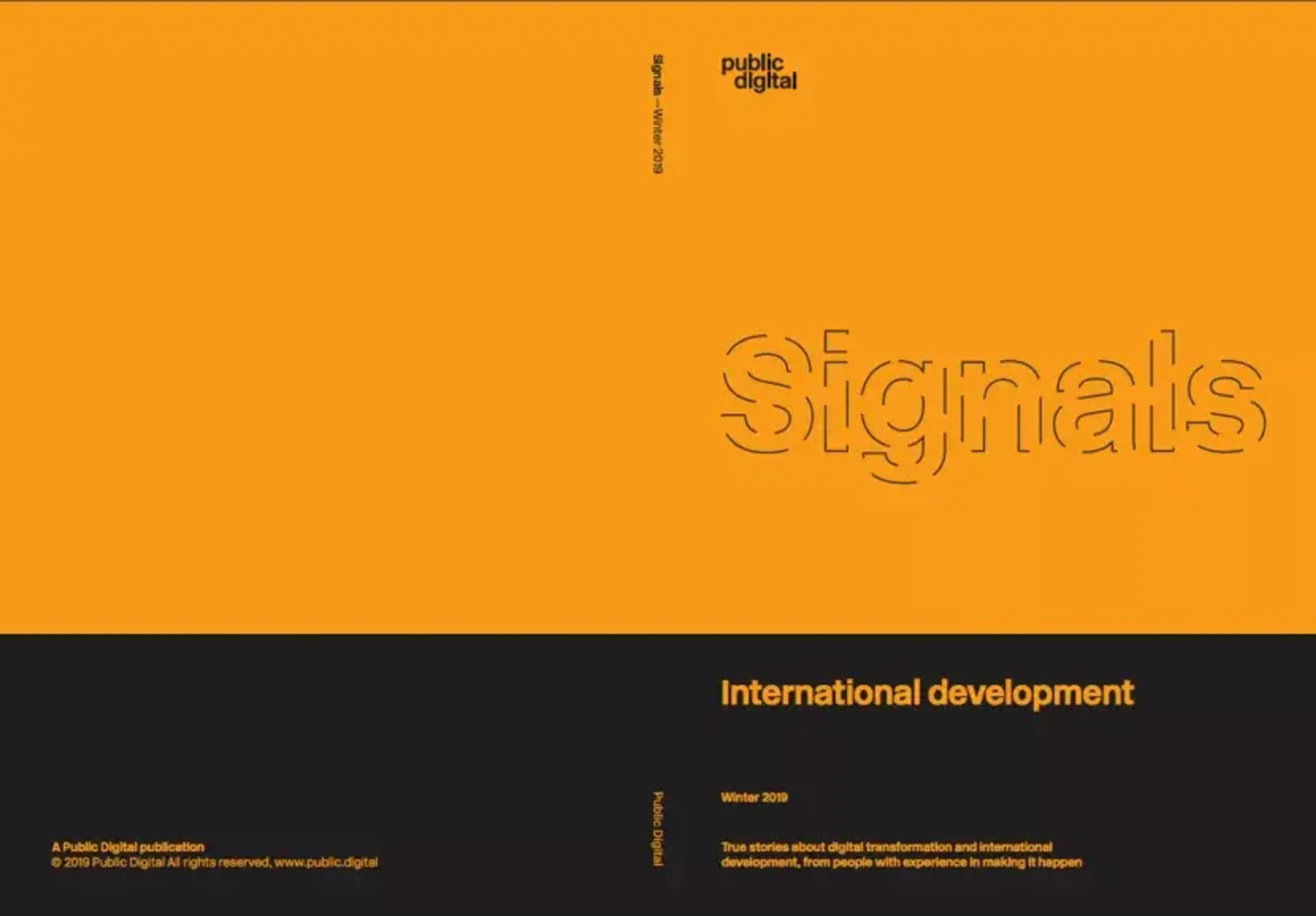
Emily Middleton
Partner
Last winter, we published a special edition of Signals, focused on digital transformation in international development. Today, we’re happy to publish all those articles online. You can read them here.
November 2019 – when these pieces were finalised – feels a world away. But many of them have even more resonance in the extraordinary times we’re living in today.

A Responsible Future for Data by Fran Bennett, is especially timely. Never has government’s ability to responsibly collect, analyse and act on health data been more urgent. Institutions that hadn’t invested in their data infrastructure, skills, culture and practices, have been less sure-footed and been forced to adapt at record speed. As Mike wrote back in March, we’re all in beta now.
Fran’s article explores the balance between protecting individual privacy and advancing the public good through data, and the fine balance between data that’s granular enough to do the job, and the risk of surveillance from data that’s easy to de-anonymise. The article exhorts organisations to think through these issues up-front. But the pandemic has also shown that the ability of elected politicians to make these calls – as opposed to private corporations – is perhaps far more limited than we previously thought.
In Digital Government in Developing Countries, Yasodora Córdova and Tiago Peixoto encourage us to “mind the empathy gap”. Where inequalities are especially stark, the designers of public services are less likely to be users themselves. This places an even greater premium on conducting regular user research to inform service delivery. With growing evidence that coronavirus is exacerbating existing inequalities, that message couldn’t be more urgent. Vulnerable groups are, on average, suffering greater negative consequences from the pandemic to their health, economic security, education, and physical safety.
It’s therefore evermore important for civil servants working on coronavirus response services to understand – and design for – the needs of their users, especially the most vulnerable. (As an aside: it’s now often not possible for digital service teams to conduct in-person user research. But the global government user research community is fast collating helpful tools good practices for remote user research).
Meanwhile, the progress and platform thinking described in Reimagining transformation for the poorest in Bangladesh helps explain why the country’s digital team has been able to move so quickly in its pandemic response. The investments in an integrated tech stack and services points described by Ishtiaque Hussein, helps explain how Bangladesh was able to expand its social safety net so rapidly. For instance, the country began paying an additional 2 million civil servants digitally in just 2 weeks in March.
And finally, just last month, the 2020 UN e-Government survey was published. As Tanya Filer says in Humbling the Numbers, “ranking-anxiety is real”. Significant progress in global rankings can be a useful motivator for additional investment. It can influence political support and a country’s soft power. But as this year’s scores are pored over, it’s a good moment to remember the biases and limitations of rankings. To be aware of false precision, and stay alert to what’s not being measured.
Happy reading!

Partner